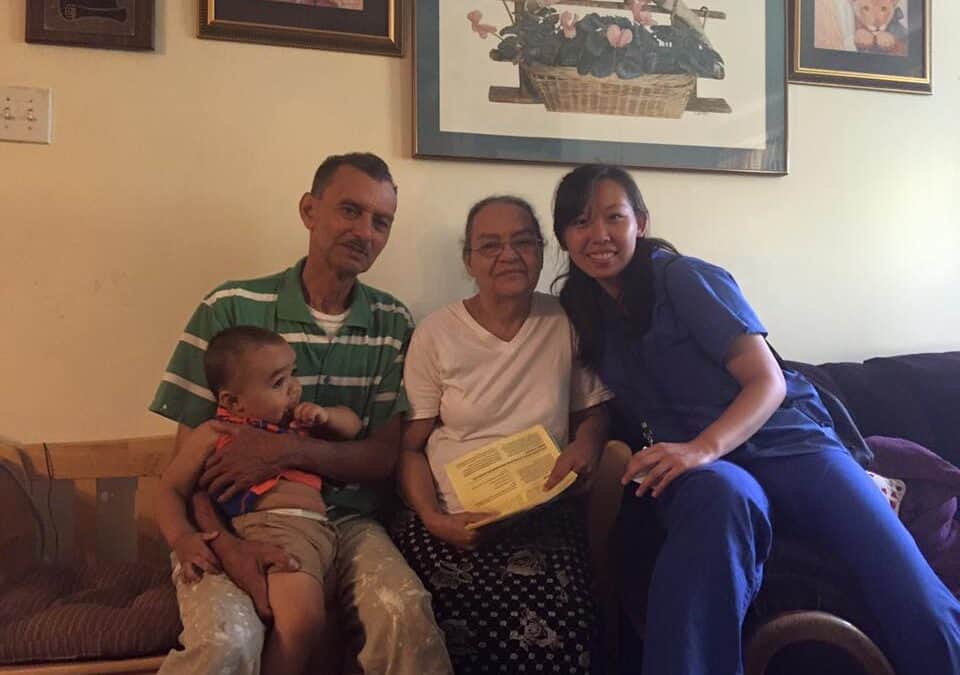What do we see when we look at a city like Northern Philadelphia? What do we think when our eyes glaze over the boarded up row homes and graffiti-laced buildings, or the discarded syringes and empty wax-paper packets scattered across the sidewalks?
I think it’s safe to say that the environment alone has greatly impacted all of us. Our surroundings these last three weeks have been the greatest exposure to poverty for many of the people on our team. For those of us who have seen or even lived in cities with as drastic health and economic disparities as Philadelphia, residing in the center of the harder end of the spectrum has definitely intensified our understanding of the systematic injustices at play here.
Certainly, the neighborhoods our teams traverse are no different from any suburbia in terms of the depth of brokenness. Brokenness simply manifests in different and unfamiliar ways, yet the Lord has shown me during my time with SMI that at the heart of any broken environment are those who dwell there. As a result, I am compelled to also ask: what do we see when we look at the people who roam the streets and the people who open their doors to us? What will we see when we look at people after we go home?
I am reminded of chapter three of the book of Hosea. It paints a beautiful yet scandalous image of a loving husband called to faithfully pursue his adulterous bride. He does this to the point of buying her out of the prostitution she so willingly subjects herself to. What did God see in Gomer that He should command Hosea to go again and love her? What did God see in us that He should send Jesus to die for people incessantly turning to other gods (v.3:1)? To completely redirect and repurpose Don Miller’s words from Blue Like Jazz (sorry, Mr. Miller), what great gravity is this that painfully drew the Father’s soul towards ours?
To answer these questions I can only go back to the very beginning where God said “Let us make man in our image, after our likeness” (Genesis 1:26). My mother always tells my brother and I, “you are a part of me; I can’t help but love you.” After these three weeks, I’ve begun to wonder if Ma’s unconditional love for her kids might echo the essence of what God says in Genesis 1:26. Though we reject Him, and though He is a holy God who cannot be in the presence of sin, I believe that He looks beyond the walls of sin we build for ourselves into the very core of who He created us to be. We are bearers of His image – He cannot help but love us. So, just as He met me in my self-inflicted scandal and entered suffering to take me back, I am learning that I am also called to enter the sufferings of others – not because they’re broken like me. No, it is much simpler than that. I am called to enter the suffering of others and nudge them home because they reflect the image of a loving God.
I can’t say this has been easy. In fact, throughout all three weeks, I have wrestled multiple times a day with my awkward personality and crippling social anxiety that seem to keep interfering with God’s good work. Nor can I say that SMI has perfectly changed my perspective for good. What I can say is that in mercy, Abba Father reminds me that He is unchanging. In mercy, He reminds me that He will always see His people as bearers of His image. In mercy, He reminds me that until He comes back, He will continue to enter the world’s suffering the way He called Hosea to enter Gomer’s. In mercy, He promises to keep teaching me to do so wherever I go- North Philly, Baltimore and to the ends of the earth.
Post by Steph Kuo
